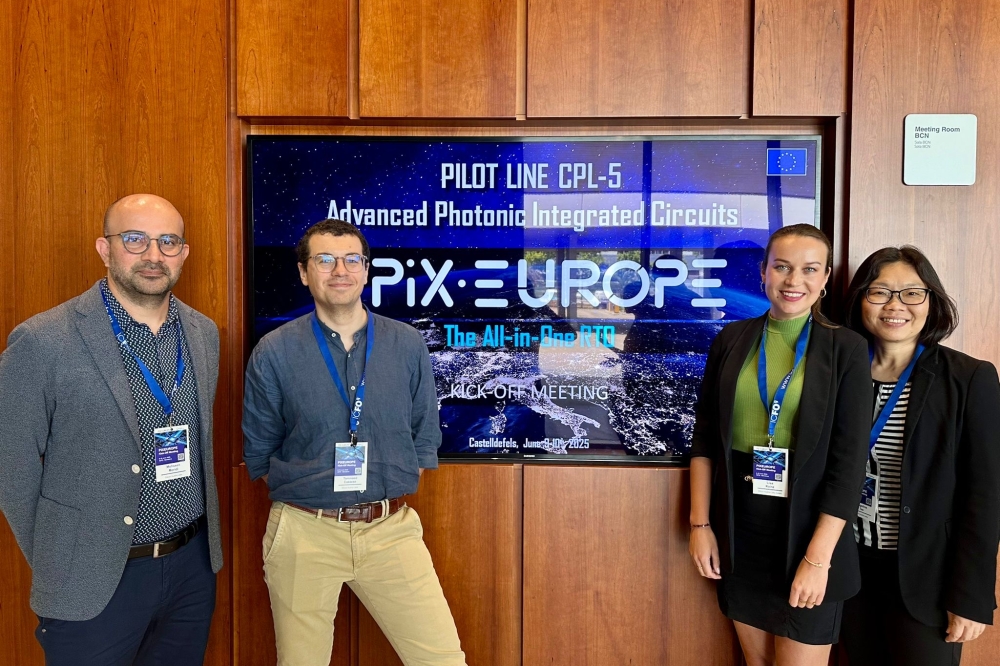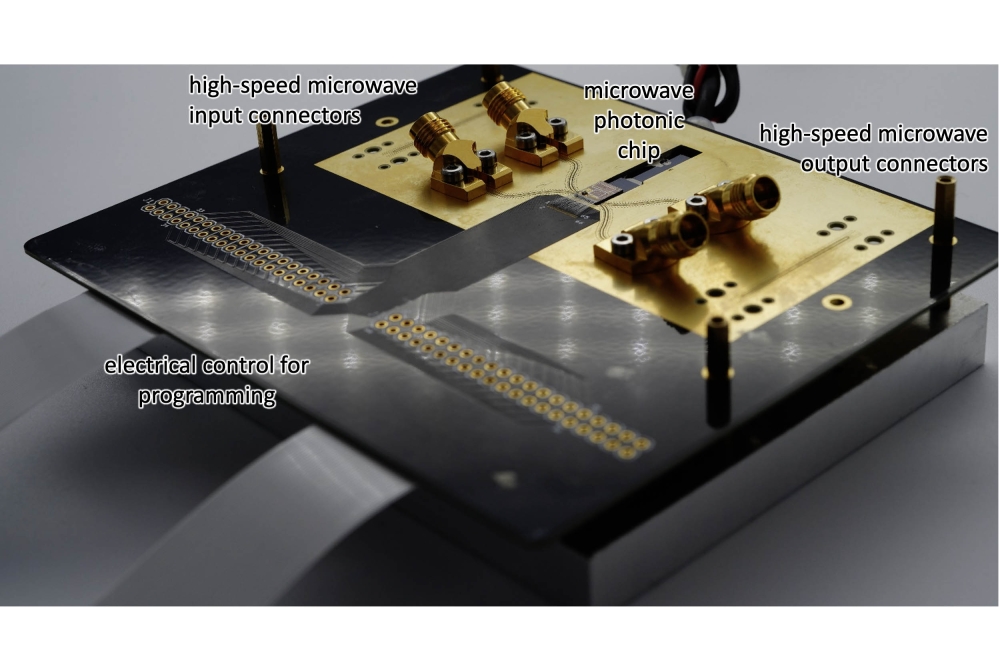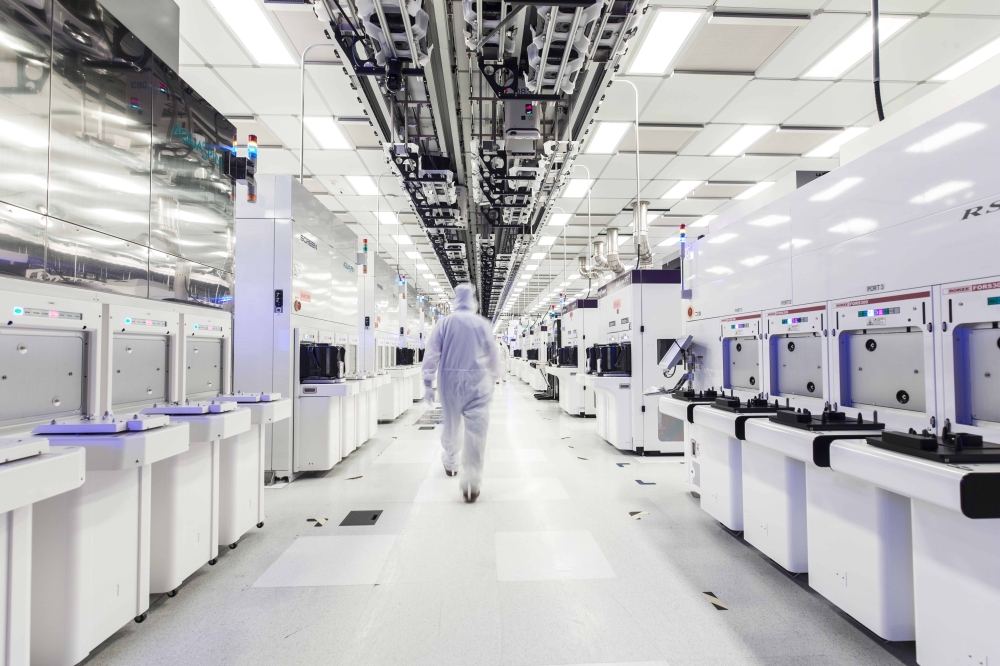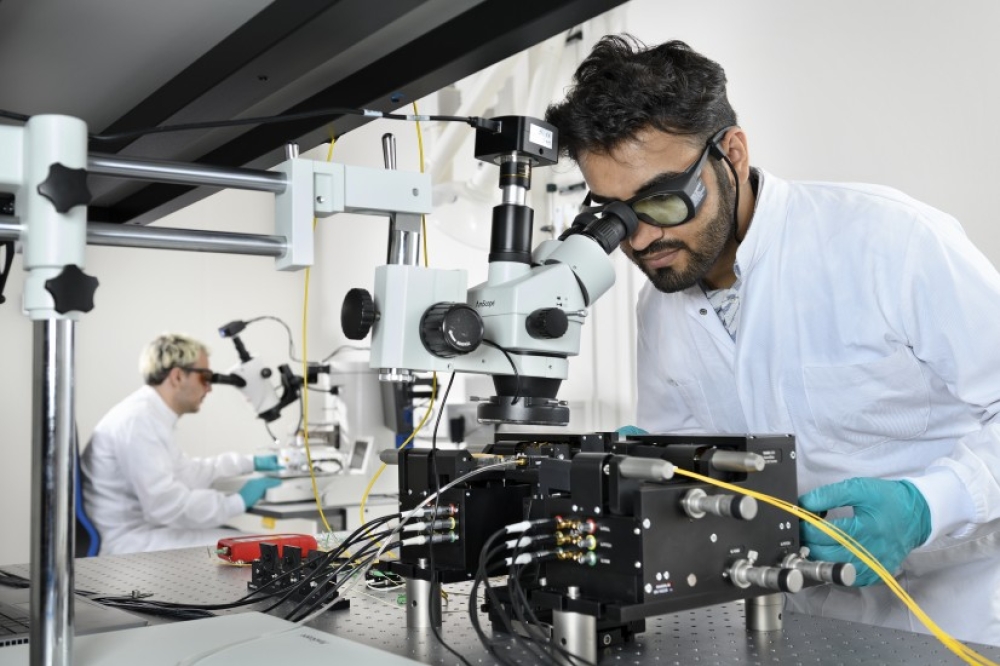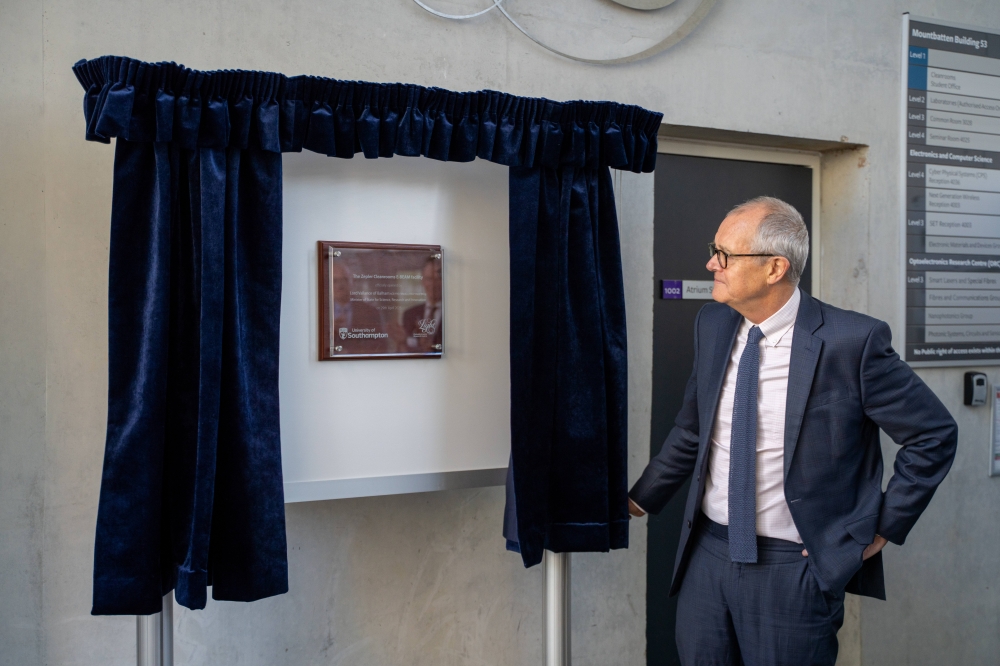Quantum photonic processor boosts machine learning
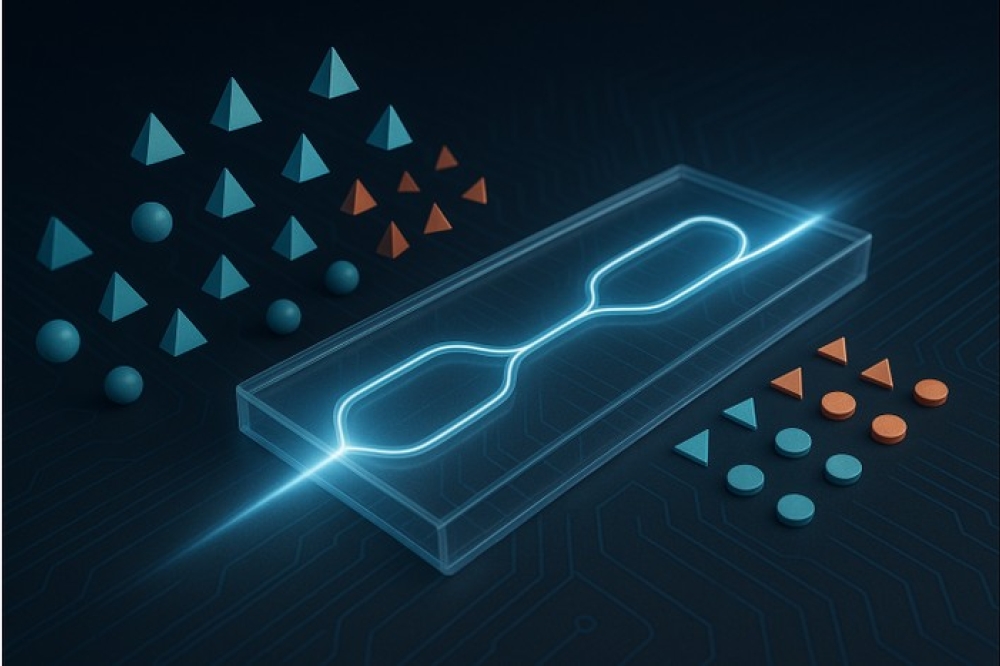
Using a quantum photonic circuit, researchers demonstrated that even small-sized quantum computers can outperform conventional systems, potentially inspiring the design of new algorithms that improve performance and reduce energy consumption (Image credit: Iris Agresti)
An international team of researchers of the University of Vienna has published an experimental study on a photonic quantum processor, reporting that small-scale quantum computers can boost the performance of machine learning algorithms. The scientists say the work, which appears in Nature Photonics, shows promising new applications for optical quantum computers.
Machine learning and artificial intelligence have already revolutionised our lives from everyday tasks to scientific research, while quantum computing has emerged as a new paradigm of computation. The combination of these two fields has opened up a new line of research: quantum machine learning. This field aims to find potential enhancements in the speed, efficiency, or accuracy of algorithms when they run on quantum platforms.
To this end, an international team of researchers designed a novel experiment carried out by scientists from the University of Vienna. The setup features a quantum photonic circuit built at the Politecnico di Milano (Italy), which runs a machine learning algorithm first proposed by researchers working at Quantinuum (UK). The goal was to classify data points using a photonic quantum computer and single out the contribution of quantum effects, to understand the advantage with respect to classical computers.
According to the team, the experiment showed that even small-sized quantum processors can already perform better than conventional algorithms. “We found that for specific tasks our algorithm commits fewer errors than its classical counterpart,” explains Philip Walther from the University of Vienna, who led the project.
Zhenghao Yin, first author of the publication, added: “This implies that existing quantum computers can show good performances without necessarily going beyond the state-of-the-art technology.”
Another interesting aspect of the new research is that photonic platforms can consume less energy with respect to standard computers. “This could prove crucial in the future, given that machine learning algorithms are becoming infeasible, due to the too high energy demands,” emphasises co-author Iris Agresti.
The researchers say their results have an impact both on quantum computation, since they identify tasks that benefit from quantum effects, and on standard computing. Indeed, the study could lead to the design of new algorithms inspired by quantum architectures that achieve better performance and reduce energy consumption.


